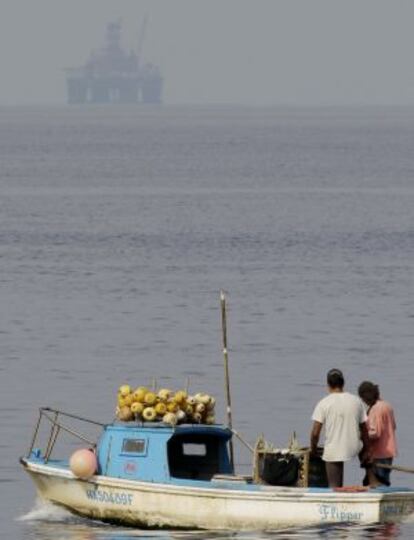Repsol stops drilling for oil off Cuba
Well has come up dry, says chairman Antonio Brufau Spanish drilling had caused concern among environmental groups

Repsol will stop exploratory drilling off the coast of Cuba because the well has been found to be dry, company chairman Antonio Brufau said Tuesday.
"We're not going to drill anymore; I'm almost certain we won't conduct any more activities there," Brufau said at a news conference to present the oil firm's 2012-2016 strategy plans.
On May 18, Repsol confirmed that results from the exploratory drill located on the Scarabeo-9 platform just north of Havana were "negative," but gave no further details. This is the second time that Repsol has failed to strike oil in exploratory drilling off Cuba, following a previous drill in 2004 that did not produce "commercially viable quantities" of crude.
The Spanish drilling has caused a lot of concern among safety and environmental groups in the United States. Washington's 50-year-old embargo on the Communist island would prevent US response teams from rushing to Cuban waters if a spill were to occur. The Gulf of Mexico current could easily send any spilt crude to pollute the Florida Straits, the Florida Keys and parts of the US east coast. Repsol's dry well was in water deeper than BP's Deepwater Horizon, from where an estimated 4.9 million barrels of oil spilled into the Gulf two years ago.
On the political front, several Florida Republican lawmakers were calling on Congress to prohibit companies who are doing business in Cuba - such as Repsol - from winning government contracts. Earlier this month, Representative David Rivera submitted an amendment to the House version of the National Defense Authorization Act for 2013 that would prohibit defense contracts from being awarded to any company that does business with nations on the State Department's State Sponsor of Terrorism (SST) list, such as Iran, Syria, Sudan and Cuba.
Meanwhile, Brufau warned that Repsol's ongoing dispute with Argentina over last month's expropriation of YPF "is going to be a long drawn-out issue" that will "involve many legal battles."
Brufau has said that Argentina must pay eight billion euros for the expropriation, but the government of President Cristina Fernández de Kirchner has refused at this time.
On April 9, Fernández de Kirchner expropriated Repsol's stake in the YPF affiliate, arguing that the company wasn't making sufficient investments in the country. "I would love to see some signs of possible dialogue, but until now I haven't," Brufau said, referring to Fernández de Kirchner's refusal to meet with him.







































